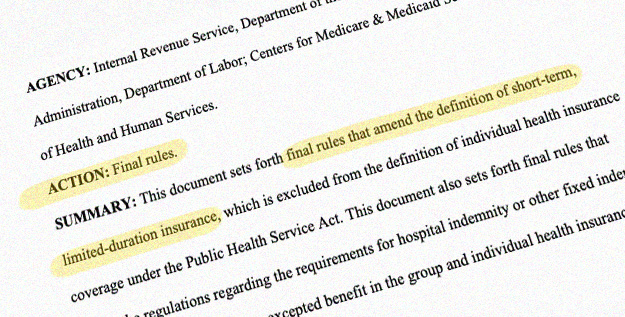
What is an exclusion?
An exclusion is a provision within an insurance policy that eliminates coverage for certain acts, property, types of damage or locations. Things that are excluded are not covered by the plan, and excluded costs don’t count towards the plan’s total out-of-pocket maximum.
In the past, individual health insurance policies frequently contained exclusions for pre-existing medical conditions. But since 2014, as a result of the Affordable Care Act, all new individual major medical policies have been guaranteed issue and pre-existing condition exclusions are no longer allowed.









